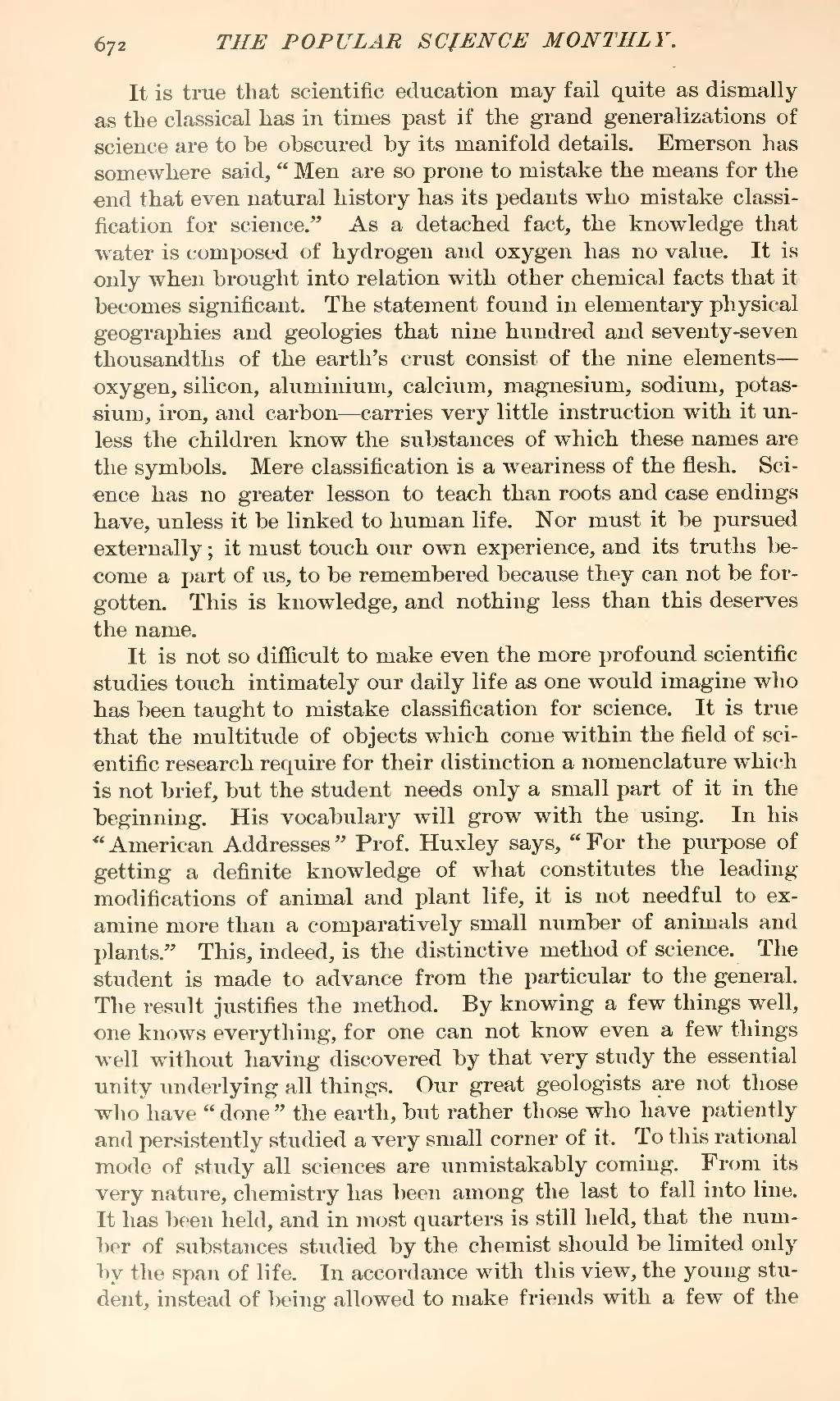It is true that scientific education may fail quite as dismally as the classical has in times past if the grand generalizations of science are to be obscured by its manifold details. Emerson has somewhere said, "Men are so prone to mistake the means for the end that even natural history has its pedants who mistake classification for science." As a detached fact, the knowledge that water is composed of hydrogen and oxygen has no value. It is only when brought into relation with other chemical facts that it becomes significant. The statement found in elementary physical geographies and geologies that nine hundred and seventy-seven thousandths of the earth's crust consist of the nine elements—oxygen, silicon, aluminium, calcium, magnesium, sodium, potassium, iron, and carbon—carries very little instruction with it unless the children know the substances of which these names are the symbols. Mere classification is a weariness of the flesh. Science has no greater lesson to teach than roots and case endings have, unless it be linked to human life. Nor must it be pursued externally; it must touch our own experience, and its truths become a part of us, to be remembered because they can not be forgotten. This is knowledge, and nothing less than this deserves the name.
It is not so difficult to make even the more profound scientific studies touch intimately our daily life as one would imagine who has been taught to mistake classification for science. It is true that the multitude of objects which come within the field of scientific research require for their distinction a nomenclature which is not brief, but the student needs only a small part of it in the beginning. His vocabulary will grow with the using. In his "American Addresses" Prof. Huxley says, "For the purpose of getting a definite knowledge of what constitutes the leading modifications of animal and plant life, it is not needful to examine more than a comparatively small number of animals and plants." This, indeed, is the distinctive method of science. The student is made to advance from the particular to the general. The result justifies the method. By knowing a few things well, one knows everything, for one can not know even a few things well without having discovered by that very study the essential unity underlying all things. Our great geologists are not those who have "done" the earth, but rather those who have patiently and persistently studied a very small corner of it. To this rational mode of study all sciences are unmistakably coming. From its very nature, chemistry has been among the last to fall into line. It has been held, and in most quarters is still held, that the number of substances studied by the chemist should be limited only by the span of life. In accordance with this view, the young student, instead of being allowed to make friends with a few of the
